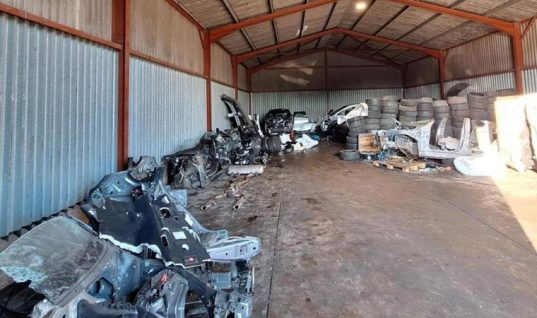ZF is developing its next generation of electric range extender systems, slated for production in 2026. This advancement aims to alleviate range anxiety among potential electric vehicle buyers by employing a combustion-powered generator linked to an electric motor for on-demand battery charging. The technology is designed to meet growing global demand and provide versatile drive solutions.
Dr. Otmar Scharrer, Senior Vice President R&D, Electrified Powertrain Technology at ZF, highlighted that despite increasing average electric vehicle ranges, range anxiety persists, especially in areas with less developed charging infrastructure. He suggested that range extenders present a practical alternative to larger batteries or plug-in hybrid powertrains.
These systems function by engaging a combustion engine coupled with an electric motor to generate power for the battery when its charge drops below a certain threshold, effectively extending the electric driving range. Unlike PHEVs or conventional combustion engines, the range extender operates within its optimal efficiency range for fuel consumption and reduced CO2 emissions.
ZF is developing two integrated variants: the electric Range Extender (eRE) and the electric Range Extender plus (eRE+). Both offer adaptable performance, E/E architecture, and voltage compatibility. The eRE combines an electric motor, inverter, software, and a planetary gearset. The eRE+ also incorporates an intelligent clutch and differential, enabling it to function as a generator or an additional secondary drive. Both models offer scalable output, ranging from 70 to 110 kW (eRE) and 70 to 150 kW (eRE+).
Dr. Scharrer noted the increasing interest in range extenders, particularly for battery-electric vehicle platforms. He emphasised ZF’s system approach, allowing for efficient responses to diverse customer and market needs.
Range extenders offer manufacturers advantages such as lower additional costs, quicker development cycles, simplified platform integration, and streamlined supply chains compared to PHEVs. This makes the technology appealing to new market entrants and those with less experience with traditional combustion engines. The technology is gaining traction in markets like China with their extended-range electric vehicles (REEVs), and interest is also growing in the USA and Europe. Range extenders can facilitate the use of smaller batteries and aid traditional manufacturers in meeting emission targets.
Further information about ZF and its technologies can be found by clicking here.







